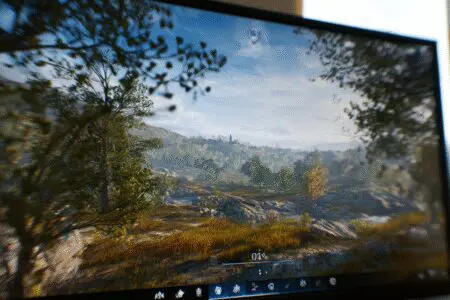Let’s settle this debate right away: Yes, RAM absolutely can affect your FPS. However, it’s not the simple “more gigabytes equals more frames” answer that many people believe. The real story is far more nuanced, involving a delicate dance between how much memory you have, how fast it is, and how your system is configured. If you’ve ever felt your gaming rig should be performing better but couldn’t pinpoint the issue, your memory could be the silent culprit.
I’ve been building and tweaking my own gaming PCs for well over a decade, and I’ve personally seen how a simple RAM upgrade can sometimes feel like a magical performance boost, while other times, it does next to nothing. The key is understanding when and why it matters. Throughout this article, we’re going to dive deep into the central question, Does RAM Affect FPS?, and unpack everything from capacity and speed to those cryptic timing numbers, ensuring you know exactly what your computer needs to deliver the smoothest gaming experience possible.
More in FPS & Competitive Gaming Category
How to Increase FPS on a Laptop
What Role Does RAM Actually Play in Gaming?
Before we get into the nitty-gritty of frames per second, it’s crucial to understand what RAM (Random Access Memory) is even doing in the first place. Think of it as your computer’s short-term memory or, even better, a workshop bench. Your hard drive or SSD is the main storage warehouse where all your tools and project parts (your game files) are kept. When you want to work on something—that is, play a game—you don’t work out of the warehouse. You bring the necessary parts and tools out and place them on your workbench for quick and easy access.
That workbench is your RAM.
When you launch a game, your computer loads essential game assets—like character models, environmental textures, sound files, and map data—from your slower storage drive into your much faster RAM. The CPU and GPU can then grab this data from RAM almost instantly. Consequently, the bigger and less cluttered your workbench is, the more assets you can have ready to go at a moment’s notice. If the workbench is too small (not enough RAM capacity), you constantly have to run back to the warehouse to swap parts, which causes delays. In gaming, these delays translate into frustrating stutters, lag, and texture pop-in, completely ruining the immersion.
RAM Capacity: How Many Gigabytes Do You Really Need for Smooth Gameplay?
This brings us to the first and most common question people have about RAM: how much do you actually need? The answer has changed dramatically over the years, and what was once overkill is now considered standard. Having too little RAM is a guaranteed way to cripple your gaming performance, but having too much often provides no benefit at all.
Is 8GB of RAM Enough for Gaming in 2025?
Just a few years ago, 8GB was perfectly acceptable. Today, it’s the absolute bare minimum for modern gaming. While you can still launch and play many titles with 8GB, you will almost certainly run into problems.
Here’s the reality of gaming with 8GB of RAM:
- Constant Stuttering: Modern games often require more than 8GB of memory for themselves, let alone the operating system and any background applications. When the game needs more memory than is available, your system is forced to use a “page file” on your SSD or hard drive as a slow, temporary substitute. This process, called swapping, causes massive stutters and FPS drops.
- No Multitasking: Forget about having other applications open. If you have 8GB of RAM, you’ll likely need to close every single non-essential program—your web browser, Discord, streaming apps—just to free up enough memory for the game to run semi-smoothly. I remember trying to play an early version of Call of Duty: Warzone on an old 8GB system with Discord open. It felt more like a slideshow than a competitive shooter.
- Lower Quality Textures: Some games will automatically detect your limited RAM and load lower-resolution textures to conserve memory, resulting in a muddier, less visually appealing experience.
In short, while 8GB of RAM will technically “work” for some older or less demanding indie titles, it is no longer sufficient for a smooth AAA gaming experience.
Why is 16GB Considered the Sweet Spot for Gamers?
For the vast majority of gamers today, 16GB is the perfect balance of performance, price, and future-proofing. It has become the gold standard for a reason. With 16GB, you have more than enough memory to handle nearly every modern game on the market without creating a bottleneck.
This capacity provides sufficient headroom for:
- The game itself to load all its high-resolution assets.
- The Windows operating system, which can easily consume 3-4GB on its own.
- Essential background applications like Discord, Steam, Spotify, or a few browser tabs.
You can comfortably game, chat with friends, and listen to music without worrying about your system running out of memory and stuttering. For anyone building a new PC today, starting with 16GB (configured as two 8GB sticks) is the most logical and cost-effective choice.
When Should You Consider Upgrading to 32GB of RAM?
While 16GB is the sweet spot, there are definitely situations where upgrading to 32GB provides a tangible benefit. This isn’t just about gaming anymore; it’s about what else you’re doing with your PC.
You might want to consider 32GB if you are:
- A Streamer or Content Creator: If you’re gaming, streaming your gameplay, and recording it all at the same time, your memory usage can skyrocket. 32GB ensures that all those simultaneous processes have the resources they need to run without impacting your in-game performance.
- A Fan of Heavily Modded Games: Games like Cities: Skylines, Tarkov, or a heavily modded Skyrim can consume an astonishing amount of RAM. Each mod adds more assets that need to be loaded, and 32GB can be the difference between a stable game and one that crashes constantly.
- A Player of Simulation Titles: Certain simulation games, most notably Microsoft Flight Simulator or Star Citizen, are incredibly memory-intensive due to their massive, detailed worlds. For these specific titles, 32GB can lead to a noticeably smoother experience.
Honestly, the jump from 16GB to 32GB for pure gaming is still a bit of a gray area for most people, but if you fit into one of the categories above or simply want to be prepared for the next generation of games, it’s a worthwhile upgrade.
Is 64GB of RAM Overkill for Just Gaming?
Let’s be perfectly clear: for a PC used exclusively for gaming, 64GB of RAM is complete overkill. You will see virtually zero performance difference in any current game by going from 32GB to 64GB. I’ve tested this myself, and the difference in average FPS is statistically insignificant. That extra money would be far, far better spent on a more powerful GPU, a faster CPU, or a larger NVMe SSD.
64GB of RAM is intended for professional workstations running extremely demanding applications, such as high-resolution video editing, complex 3D modeling and rendering, or running multiple virtual machines. Unless your gaming PC doubles as your full-time professional workstation, save your money.
Does RAM Affect FPS More Through Speed or Capacity?
This is where the conversation gets really interesting. Once you have enough RAM capacity to prevent your system from running out of memory (for most people, that’s 16GB or 32GB), the focus shifts entirely to RAM speed. While adding more capacity beyond what you need won’t increase your FPS, increasing the speed of your existing RAM absolutely can. Faster RAM allows your CPU to access game data more quickly. This is particularly impactful in CPU-bound scenarios, such as playing at 1080p with a high refresh rate monitor, where the CPU is working overtime to feed frames to the GPU.
Understanding RAM Speed (MHz) and What It Means for Your Frames
RAM speed is measured in Megahertz (MHz) or, more accurately, Megatransfers per second (MT/s). In either case, a higher number signifies a faster rate of data transfer between your RAM and the rest of your system. The performance uplift you get from faster RAM can be surprisingly significant, often providing a 5-15% boost in average and minimum FPS, which helps make gameplay feel much smoother.
The jump from an older, slower standard like 2666MHz DDR4 to a modern sweet spot like 3600MHz DDR4 or 6000MHz DDR5 can be just as impactful as a minor CPU upgrade in some games. It’s an often-overlooked component that can unlock the full potential of your processor.
What About RAM Timings and Latency (CL)? The Other Side of the Speed Coin
However, raw speed in MHz isn’t the whole story. You also have to consider the RAM’s timings, specifically its CAS Latency (CL). In the simplest terms, CAS Latency is the delay, measured in clock cycles, between your memory controller telling the RAM stick it needs a piece of data and the RAM actually making that data available. For latency, a lower number is better.
This creates a balancing act. The ideal RAM kit has both a high frequency (MHz) and low timings (CL). For example:
- A 3600MHz CL16 kit is generally superior to a 3600MHz CL18 kit.
- A 6000MHz CL30 kit is a fantastic sweet spot for modern DDR5 systems.
I’ve spent countless hours in the PC’s BIOS manually tweaking timings to squeeze out every last drop of performance. It can be a rewarding but delicate dance; sometimes you gain an extra 5 FPS, and other times you end up with a system that refuses to boot. For most users, it’s much simpler to buy a quality kit and enable its pre-configured XMP (Extreme Memory Profile) or DOCP/EXPO profile with a single click in the BIOS.
Does RAM Affect FPS when you have a powerful CPU?
Absolutely, and this is a critical point of synergy. A powerful CPU can process data at an incredible rate, but it’s completely dependent on the RAM to feed it that data. If your RAM is too slow, it acts as a bottleneck, forcing your expensive CPU to wait around, unable to perform at its full potential.
This effect is particularly pronounced with modern CPUs, especially AMD’s Ryzen series. Their architecture is designed in a way that the speed of the processor’s internal communication lanes (the Infinity Fabric) is often tied directly to the memory speed. Consequently, pairing a high-end Ryzen CPU with slow RAM is one of the biggest performance mistakes you can make. Giving a fast CPU access to fast memory is essential for achieving the highest possible frame rates.
What is Dual-Channel RAM and Why Is It Non-Negotiable for Gaming?
If you take only one piece of technical advice from this entire article, let it be this: always use two or four sticks of RAM to run in dual-channel mode. This is, without a doubt, one of the most critical and frequently overlooked aspects of building a gaming PC.
Nearly all modern motherboards have a dual-channel memory architecture. You can think of it like upgrading a single-lane highway to a two-lane highway. By installing RAM in pairs (for instance, two 8GB sticks instead of one 16GB stick), you effectively double the communication bandwidth between your RAM and your CPU’s memory controller.
Running your RAM in single-channel mode (using only one stick) will severely bottleneck your system and can slash your gaming performance by as much as 15-25%. The difference is not subtle; it’s a massive, tangible hit to your average FPS and, even more so, your 1% low FPS, which leads to more stuttering. Always buy RAM in a kit of two (or four) modules and install them in the correct slots on your motherboard (usually slots 2 and 4, but check your manual) to ensure you’re getting the performance you paid for.
How Can I Check If My RAM is Holding Back My Gaming Performance?
So, how can you tell if your RAM is the weak link in your setup? Fortunately, there are a few straightforward ways to diagnose a potential memory bottleneck.
Monitoring Your RAM Usage in Real-Time
The easiest thing to check is your RAM capacity. While you’re playing a demanding game, you can use built-in tools to see how much memory is actually being used.
- On Windows, press Ctrl + Shift + Esc to open the Task Manager.
- Go to the “Performance” tab and click on “Memory.”
- Leave this open on a second monitor while you play, or check it immediately after a gaming session.
If you see that your memory usage is consistently at 95% or higher, it’s a clear sign that you don’t have enough RAM. Your system is being starved for memory, which is almost certainly causing stuttering and performance issues. An upgrade to a larger capacity kit will make a world of difference.
Identifying a RAM Speed Bottleneck
Pinpointing a speed bottleneck is a little trickier, but a common issue is that people buy fast RAM but forget to enable its advertised speeds. By default, your motherboard will run new RAM at a slow, standard speed (like 2133MHz). You have to manually enable its faster XMP/DOCP/EXPO profile in the BIOS.
You can use a free utility like CPU-Z to check. Open the application and navigate to the “Memory” tab. Look at the “DRAM Frequency.” Note that this number will be half of your RAM’s rated speed because it’s Double Data Rate (DDR) memory. So, if you bought a 3200MHz kit, CPU-Z should show a frequency of around 1600MHz. If it shows something much lower, like 1066MHz, it means you’ve left a huge amount of performance on the table.
The Final Verdict: How Much Should You Actually Spend on RAM for Gaming?
Putting it all together, RAM is a crucial component that directly impacts gaming performance through a combination of capacity, speed, and configuration. To maximize your FPS, you need a balanced approach.
Here are some clear, actionable recommendations for 2025 and beyond:
- The Sweet Spot (Most Gamers): A 16GB (2x8GB) kit of DDR4-3200 or DDR4-3600 remains the king for price-to-performance. For those on a newer platform, a 16GB (2x8GB) kit of DDR5-6000 is the equivalent starting point.
- The High-End Standard (Enthusiasts & Multitaskers): A 32GB (2x16GB) kit of DDR4-3600 or, more commonly now, DDR5-6000 CL30 is the new sweet spot for high-end builds. This gives you flawless performance in every game and plenty of room for heavy multitasking.
- The Workstation Tier (Creators who Game): If your PC is for more than just gaming, a 64GB (2x32GB) kit of high-speed DDR5 is a sound investment for professional workloads, but it won’t give you any extra frames in games over a 32GB kit.
If you are interested in a deeper technical dive into how computer memory functions at a fundamental level, the University of Maryland’s Computer Science department offers an excellent overview of RAM technology that explains the core concepts.
Ultimately, the choice comes down to your specific needs and budget. But whatever you choose, remember the golden rule: always run in dual-channel.
So, the next time you’re planning an upgrade, don’t just look at the gigabytes. Consider the speed, the timings, and the configuration. The right RAM setup won’t just run your games; it will allow your entire system to operate at its peak potential. It’s all about creating a balanced system, and now you have the knowledge to do it right.
Frequently Asked Questions

What is the recommended amount of RAM for gaming in 2025?
For most gamers today, 16GB of RAM is the ideal balance for playing modern games smoothly, while 8GB might suffice for older titles; 32GB is suitable for heavy multitasking or future-proofing.
How does RAM latency impact gaming, and what does CL16 or CL18 mean?
RAM latency, indicated by timings like CL16 or CL18, measures the delay for RAM to respond to the CPU; lower latency (fewer clock cycles) results in quicker responses and potential performance gains in gaming.
In what way does RAM speed affect gaming?
Faster RAM allows data to move more quickly between memory and the CPU, which can improve FPS, especially in CPU-intensive games such as strategy titles, by reducing delays in data transfer.
How does RAM size influence gaming experience?
The amount of RAM determines how much data your system can handle at once; insufficient RAM leads to reliance on slower storage, causing lag and reduced FPS, while enough RAM ensures smooth performance.
What role does RAM play in gaming performance?
RAM acts as your PC’s short-term memory, holding game data like textures and maps so they can be accessed quickly, which is essential for smooth gameplay and avoiding stutters.





